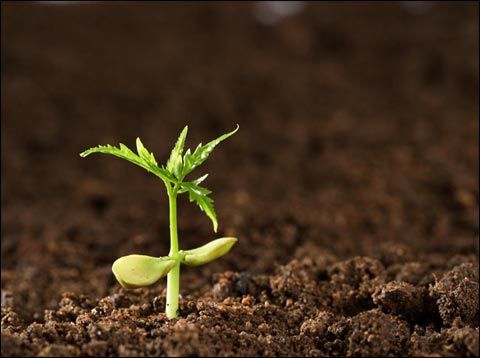
The results showed that Bacillus subtilis had the following effects on soil improvement and crop quality improvement.
1. Antibiosis
Antibiosis means that antagonistic microorganisms can inhibit the growth and metabolism of pathogenic microorganisms by producing metabolites at low concentrations, thus affecting the survival and activities of pathogenic microorganisms. In the last half century, many effective antibacterial substances have been isolated and purified from the metabolites of different strains of Bacillus subtilis.
2. Lysozyme
The lysozyme action of Bacillus subtilis is mainly manifested by adsorbing on the mycelia of pathogenic bacteria, and growing with the growth of mycelia, and then producing lysozyme substances, causing protoplasm leakage and mycelia rupture.
Or the production of antibacterial substances through the dissolution of pathogenic bacteria spores cell wall or membrane, resulting in cell wall perforation, deformity and other phenomena so as to inhibit spore germination.
3. Induce plant resistance and promote plant growth
Inducement of plant resistance means that Bacillus subtilis can not only inhibit plant pathogens, but also induce plant resistance mechanism so as to enhance plant resistance performance.
Bacillus subtilis has the strongest resistance, the most functions, the most extensive adaptability and the most stable effect.
Bacillus subtilis produces substances similar to cytokinin and plant growth hormone, promoting plant growth and making plants resistant to pathogen invasion.
4. Protect the environment
Bacillus subtilis is widely used in biological fertilizers. When used in crops or soil, it can be colonized in the rhizosphere or in the body of crops and has a specific fertilizer effect.
At present, microbial fertilizers can improve soil fertility, improve the utilization rate of chemical fertilizers, inhibit the absorption of nitrate nitrogen, heavy metals and pesticides by crops, and purify and repair soil.
It plays an irreplaceable role in reducing the occurrence of crop diseases, promoting the utilization of crop straw and urban garbage, improving the quality of crop products and food safety.
5. Effect of Bacillus subtilis on respiration intensity of soil microorganisms
When soil is contaminated by foreign pollutants, microorganisms may need more energy to maintain their survival, which results in varying degrees of metabolic activity response of soil microorganisms.
The results showed that the bacillus subtilis treated by all the mass fractions showed the stimulation effect on soil respiration, and the greater the mass fraction of Bacillus subtilis in the soil, the greater the stimulation effect on soil respiration intensity, namely, the positive correlation between the stimulation intensity and the application mass fraction.
The way bacillus subtilis ACTS
1. Competitive Effect:
Seed or after filling root, bacillus subtilis can in crops, root surface, root within and through plants catheter conduction to the ground part of in the crop root, root, stem, leaf of allelic focal colonization and reproduction, protect the crop roots from bacteria infection and restrain the crop germs spread, so as to achieve prevention role.
2. Bactericidal effect:
Bacillus subtilis can produce bactericidal substances such as peptide and protein in the process of colonizing and reproducing the allelic points in the root surface, root, stem and leaf of crops, thus killing the pathogenic bacteria of crops and achieving the effect of disease prevention.
3. Promoting growth:
Bacillus subtilis has the function of phosphorus hydrolysis, which can transform the invalid phosphorus in soil into available phosphorus that can be absorbed by crops, promote the growth of crop roots and plants, and improve the disease resistance of crops.
To sum up, Bacillus subtilis has a good effect on controlling diseases of rice, wheat, peanut, tomato, pepper, soybean, corn and other crops.
Especially for wheat powdery mildew, scab, sheath blight and other diseases, the control effect was better, and the field yield was up to 10%~50%.

Phone: +86-317-2135910
E-mail: Erica@stbiol.com
Address: Machang Town,Qing County ,Cangzhou City ,Hebei,China
Hebei Shuntian biotechnology Co.,Ltd.
Add:Machang Town,Qing County ,Cangzhou City ,Hebei,China
Tel: +86-317-2135910
E-mail:Erica@stbiol.com
© Copyright - 2018-2020 : All Rights Reserved.